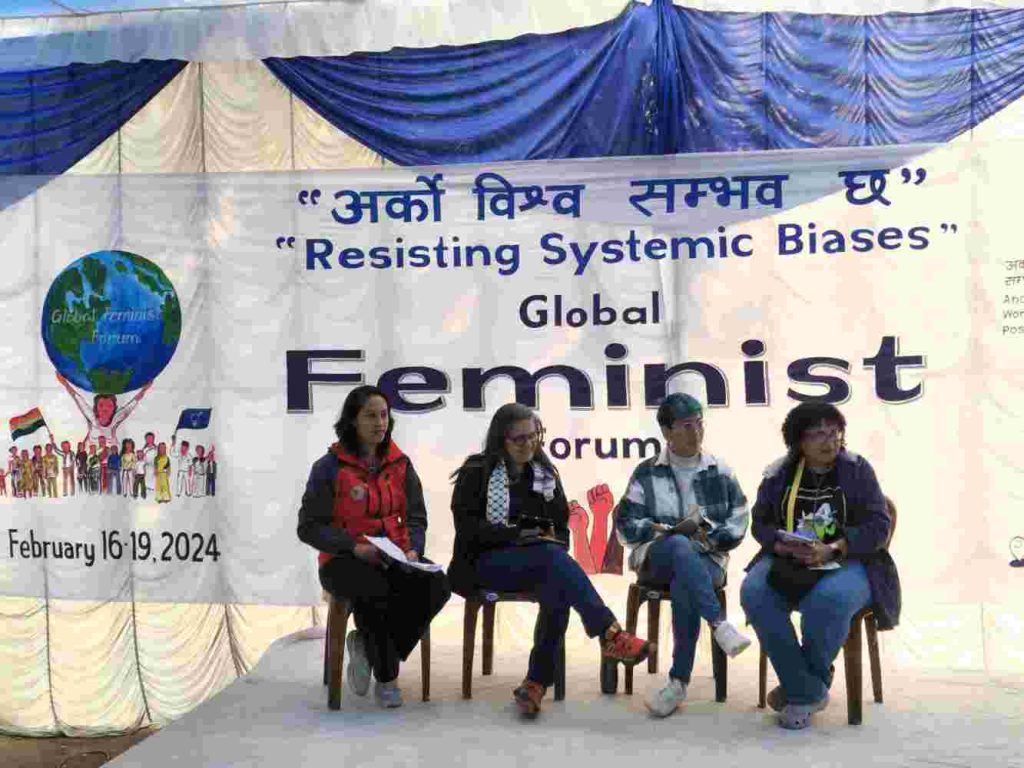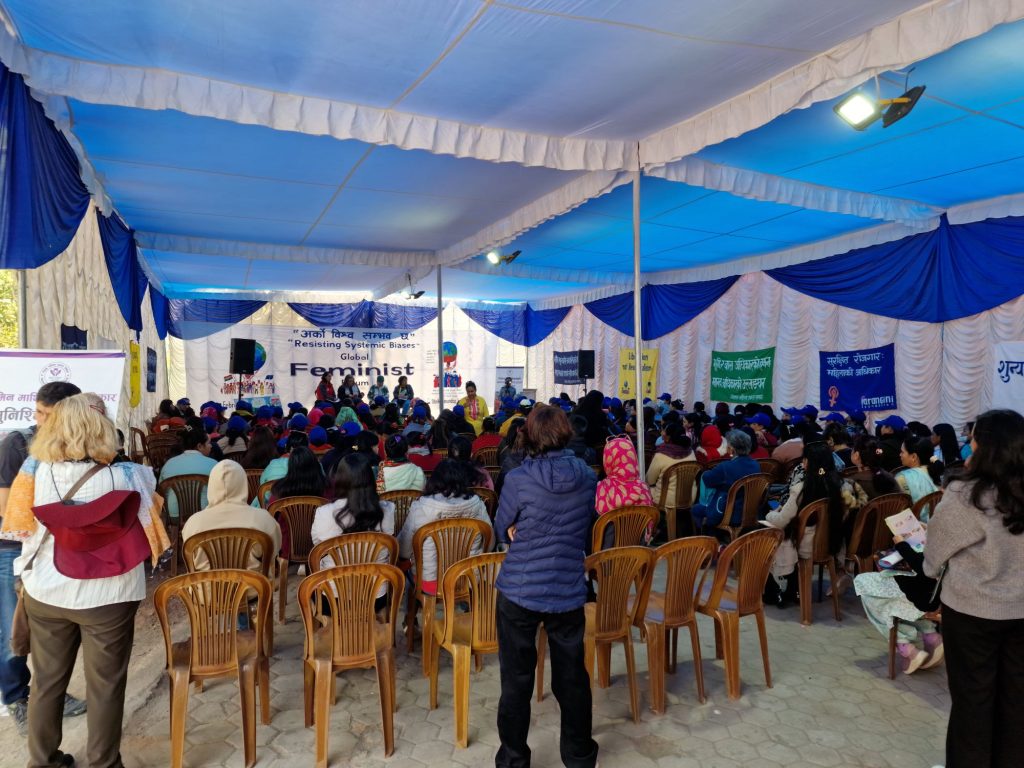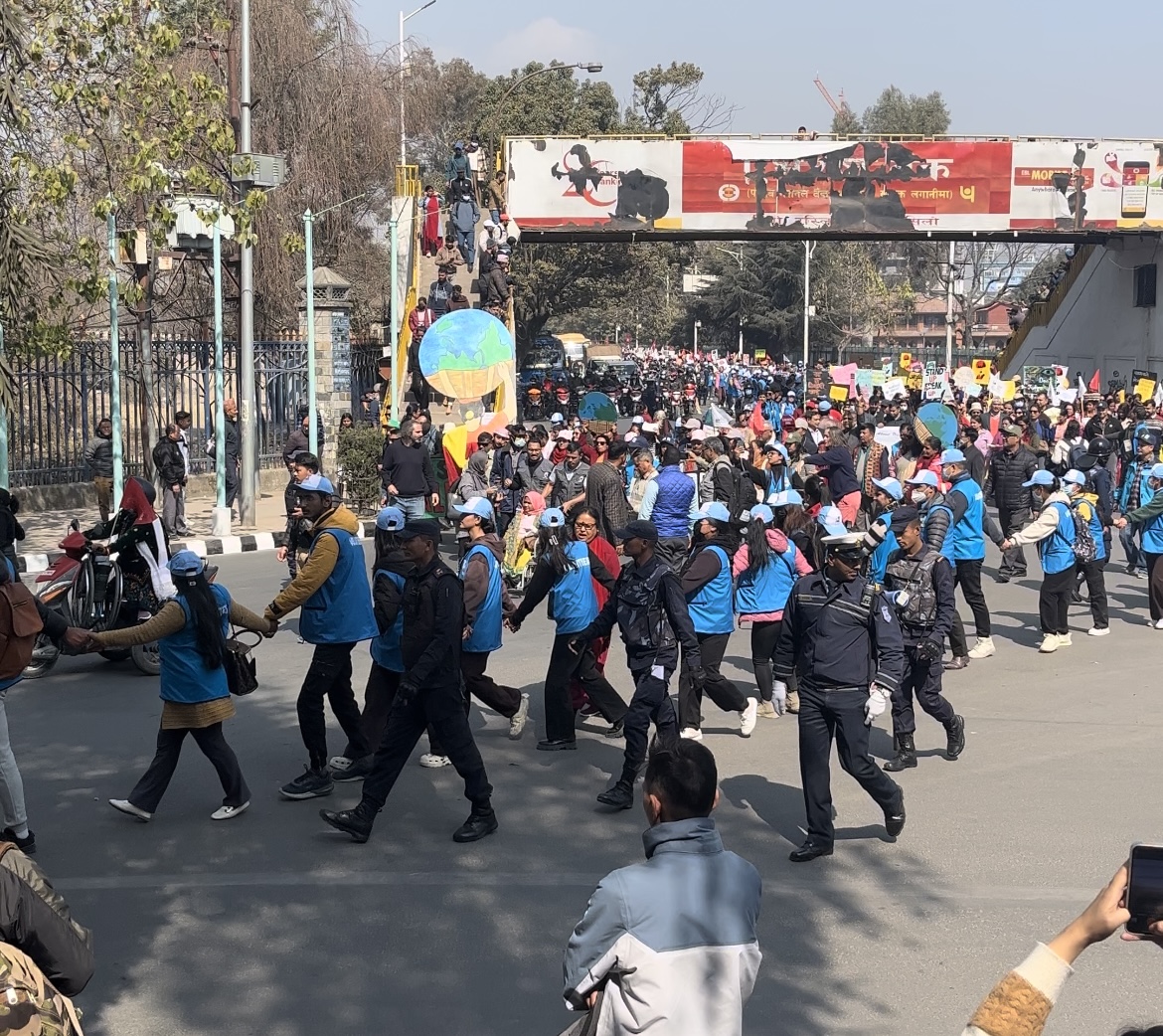Imagine a platform with over 50,000 activists and intellectuals from 98 countries across 6 continents, having creative and critical discourses on varied socio-economic, climatic, and political issues with a shared vision that “Another world is possible.” Imagine the communities of farmers, marginalized women, youth, indigenous groups, and Civil Society Organizations uniting with hope, inspiration, and solidarity to drive positive change towards a more equitable and sustainable future. That is exactly what happened during “World Social Forum (WSF) 2024 in Kathmandu, Nepal from February 15-19, 2024.”
CARE Nepal, aligning with WSF priorities and its vision, played a catalytical role to advance solidarity focusing on various issues including empowerment of smallholder farmers (particularly women), the urgent need to address Nepal’s vulnerability towards climate change, advocate for women’s land and housing rights, promote sustainable agriculture practices, develop women and girls-responsive action plans and foster collaboration among diverse stakeholders.
WSF concluded with over 60 thematic declarations, promising to pursue a fairer and more just world through unified action, mobilizing collective energies, and celebrating resilience of social movements while prioritizing justice, peace, equality, and human dignity.

Moving ahead, CARE Nepal and its Network of Partners are committed to carrying on the momentum created at the WSF to amplify the voices of the marginalized by translating thematic declarations into tangible change.
WSF 2024 was more than just an event; it was a reminder of infinite capacity of human connection, solidarity, and shared vision to build a better future.
WSF acted as a powerful melting pot of creative ideas and opinions, discussions, networking and proclamation of people’s power. Many argued that improvements within existing frameworks are of utmost importance aiming for gradual change, i.e. ‘Better World is Possible’ rather than focusing on radical transformation. Despite WSF’s aim for inclusivity, the discussions on racial and ethnic issues were sidelined due to limited participation from those backgrounds. These issues, among others, underscore the importance of forums like the WSF for uniting against issues of inequality, violence, and oppression on a global scale.

Related documents:
CARE Nepal's Engagement in the World Social Forum
A blogpost by Smriti RDN Neupane in collaboration with Sabin Budhathoki and Anup Pokhrel

